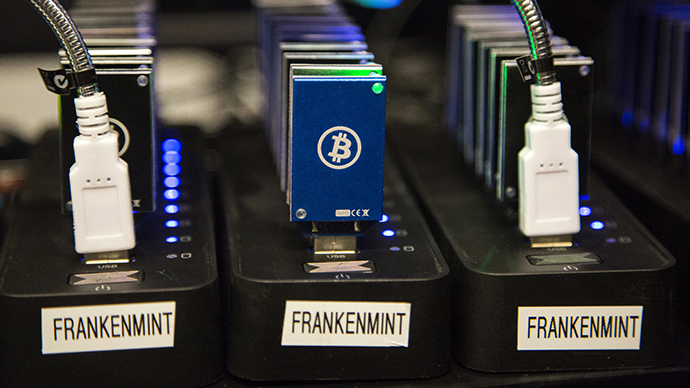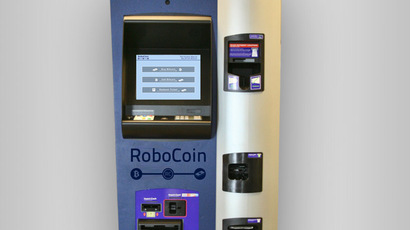Bitcoin currency could be crashed by colluded attack, researchers claim

Cornell University researchers say they’ve discovered a theoretical attack on the Bitcoin network that has the potential of ravaging the entire digital cryptocurrency community if executed properly.
Professor Emin Gun Sirer and Ittay Eyal, PhD, of the Ivy League institution published a study this week in which they suggest malicious actors could be selfishly “mining” Bitcoin for more than they should rightfully receive, in turn setting the stage for significant consequences to unfold with regards to all cryptocurrencies currently thought to be incentive-compatible.
To generate Bitcoins, so-called miners pool together high-powered computers and in turn force those machines to solve complicated cryptographic puzzles. Prof. Sirer claims “Bitcoin is broken” in the new study, however, because dishonest minors could be keeping their puzzle-solving escapades secret, in turn significantly undermining the entire system on which Bitcoin and other similar currencies are based.
The researchers recall in their abstract that “Bitcoin records its transactions in a public log called the blockchain” and acknowledge “Its security rests critically on the distributed protocol that maintains the blockchain, run by participants called miners.”
“Conventional wisdom asserts that the protocol is incentive-compatible and secure against colluding minority groups, i.e., it incentivizes miners to follow the protocol as prescribed,” the researchers continue. On the contrary, however, their study suggests a type of attack exists where colluding miners obtain revenue larger than their fair share.
“This attack can have significant consequences for Bitcoin: Rational miners will prefer to join the selfish miners, and the colluding group will increase in size until it becomes a majority,” they wrote. “At this point, the Bitcoin system ceases to be a decentralized currency.”
In a blog post detailing their discovery published on Monday, the researchers claim, “We're the first to discover that the Bitcoin protocol is not incentive-compatible.” Indeed, Eyal and Sirer insist that the entire Bitcoin protocol can be “gamed” by people with selfish interests and warn that, “once the system veers away from the happy mode where everyone is honest, there is no force that opposes the growth of really large pools that command control of the currency.”
Bitcoin Magazine technical editor Vitalik Buterin told BBC News that the method of attack mapped out by the Cornell researchers is “highly theoretical” because he doesn’t believe the software exists in order to provide miners with information about what others in the community have accomplished, and insisted “No honest (or semi-honest) miner would want to join a selfish pool.”
“Even if they do have a small incentive to [join], they have an even greater incentive to not break the Bitcoin network to preserve the value of their own Bitcoins and mining hardware,” Buterin added.
Should they make that jump, however, the researchers say selfish miners will be able to earn more revenue than honest participants, opening up the possibility of the whole currency to be eventually subverted if the software mentioned by Buterin is eventually developed and miners opt to egregiously attempt to generate extra Bitcoin at the cost of the entire currency.













